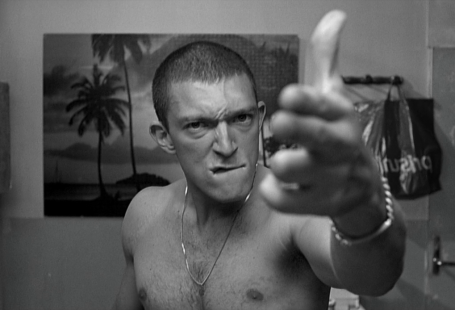Motion pictures copyright protection: rapidly developing technologies threaten to undermine the efficacy of copyright protection for motion pictures
In our present “age of information” the new technology of digitalization has upset the delicate balance created and maintained by copyright law between the audience and the Studios, that owned the film and collect the money after having screened it.
When the balance is tipped, other questions are raised and they receive different answers depending on the approach of the person questioned: what should be done about it? How much current copyright law needs altering?
Depending on the answers and on the attitude that people have towards works of art and motion pictures there are two different streams of thought currently. Some are afraid that authors will no longer be compensated for their creative efforts and will consequently refuse to create.
Others worry that users and viewers in general will lose interest in art and in particular in watching and sponsoring films.
Regardless, what remains the concern of the majority is how to effectively protect the moral rights of authors in an environment where works can be transformed, and some might say mutilated, with a few clapping of hands.
The only thing that everyone seems to agree on is that our world is changing due to technology and that current copyright law as it stands cannot keep up the new order and evolution of technology.
The film industry’s increasing confidence in digital technology presents a dilemma for filmmakers, directors and screenwriters.
On one hand, they use this technology to create spectacular special effects, enhance music, sound, and picture quality, and to streamline the overall production process; on the other hand they also seek protection from digital technology’s abuses because everyone becomes able to transform easily and readily, reshape and give the original work another image or meaning, without authorization by the rights’ owners.
For these reasons it has become necessary to enforce authors’ protection and give them the instruments to protect themselves, their interests and the integrity of their works.
The use of new technology in films has caused many more recent controversies. One particularly strong example of that can be seen about the inflamed debate regarding the colourisation of old films.
Directors and screenwriters have the only power to support and advocate a stronger protection of moral rights for motion pictures to safeguard against unauthorized digital alteration of motion pictures by film studios and keen intellectual property pirate filmmakers. Moral rights, a civil law concept, provide a means for authors, such as directors and screenwriters, to protect the intellectual and creative aspects of their work, as contrasted with copyright law, which protects the economic aspects of a work. Authors do not have any other authority or power to invoke, but moral rights.
What remains is the difficulty in harmonizing these two different approaches and finding a compromise between civil and common law’s concept of moral rights especially if we are to grant a uniform worldwide protection for authors’ moral rights in film.
Disagreement about the moral rights of the filmmakers is thus not very surprising. It has resulted in filmmakers resorting to litigation under contract law, moral rights law and even “passing off” provisions (of the Lanham trademark Act in the United States which also illustrates different attitudes to the principles and practice of rights in Europe and in the United Kingdom and the United States.)
Differences in legal regimes mean that auteurs have secured greater protection in France and Italy (generally in Europe or countries regulated by civil law), for films made in the United States that are available in the United States themselves because of that nation’s very weak moral rights regime.
The common idea and purpose would be to find some principles to harmonize the concept of an author’s moral rights and make them exactly alike all over the world. Some common ideas might help to find the best way forward for the appropriateness of modifications to any art form, including the idea of colourisation.
Dandi Law Firm provides legal assistance in Copyright and Film. Check out our Services or contact Us!





